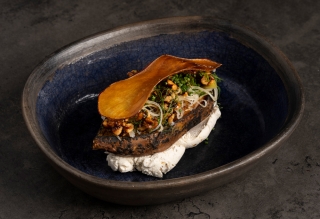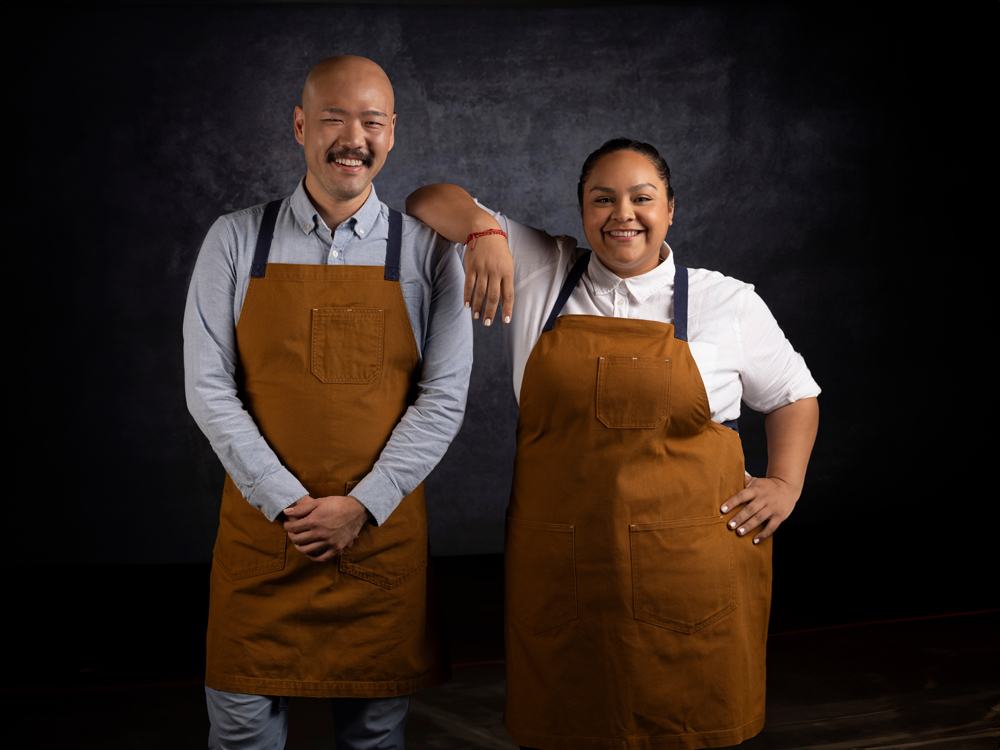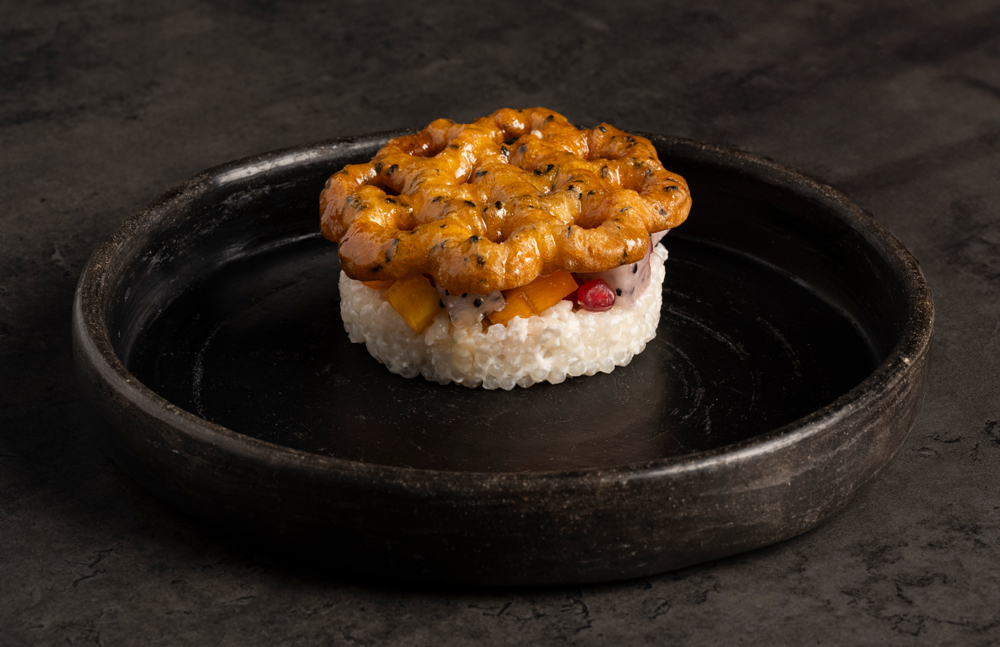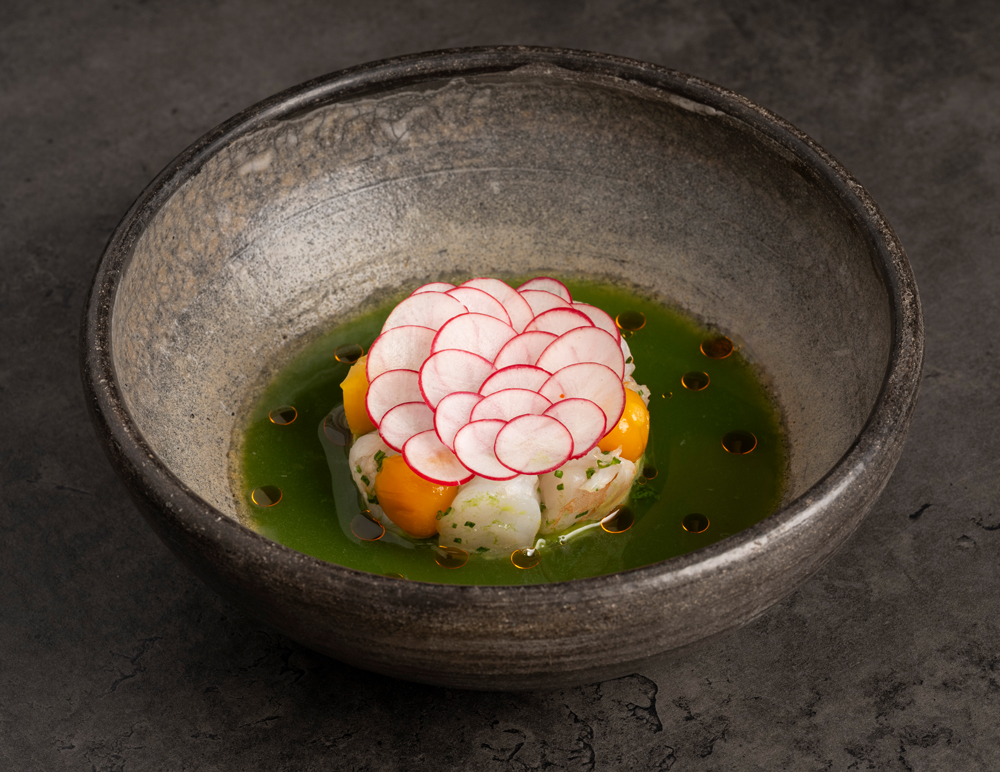
Global Cuisine Fusion Case Study: New Cuisine Reflects the Diversity of Its Consumers
02 April 2024Melding Latin American and Chinese cuisines becomes a labor of love and example of successfully merging seemingly divergent flavors into one concept.
By Lisa Parrish, GMC Editor
Feedback & comments: This email address is being protected from spambots. You need JavaScript enabled to view it.
 It’s challenging to teach the nuances of global cuisine fusion to students whose palates and culinary know-how are just developing. Professional chefs possess years of experience as they unite various ingredients that just make sense to them. Here is a case study that may help students understand that knowing ingredient relationships doesn’t necessarily begin in the kitchen but with an understanding of the world beyond the kitchen door.
It’s challenging to teach the nuances of global cuisine fusion to students whose palates and culinary know-how are just developing. Professional chefs possess years of experience as they unite various ingredients that just make sense to them. Here is a case study that may help students understand that knowing ingredient relationships doesn’t necessarily begin in the kitchen but with an understanding of the world beyond the kitchen door.
Houston Chefs Evelyn Garcia and Henry Lu, co-owners of JŪN, created a first-of-its-kind fare category – New Asian American. However, no unique category name could accurately describe the global influences they meld into their food. Chef Evelyn grew up in Houston with a Salvadorian father and Mexican mother, who both loved to cook and worked in the foodservice industry. Chef Henry is the son of Chinese restaurant owners and grew up in New York City’s multicultural borough, the Bronx. Each chef earned degrees from culinary schools, she at the CIA and he at the French Culinary Institute of New York.
Chef Henry humbly touched on the secret of their fusion success when he said, “At the end of the day, food is food. We cook New Asian American food and pull from our backgrounds.” The evidence of their histories and learned experiences combine and swiftly flow through JŪN’s diverse and delicious menu.
Chef Evelyn said, “My mom cooked in a lot of professional kitchens, including a Chinese cafeteria. I learned a lot about Asian cooking techniques and ingredients.” Her formative years helped pave the way with a broad background in ingredients, flavors and cooking styles.
Chef Henry spent his younger years snacking on Sichuan peppercorns and eating fuller-body flavors derived from bringing with MSG and cooking wines. His experiences in the Bronx melded with the local cultures and created a unique version of his personal comfort food. “I loved arroz con pollo with red curry and fried plantains,” he said.
Summing up his early flavor foundation, Chef Henry said, “I grew up eating blended food. It was fortifying and diverse. It was beautiful and multicultural.” The families of both chefs were very much ahead of the global food fusion trend seen today.
The chefs’ paths crossed in 2011 while they worked together in a New York City restaurant and became friends. Evelyn moved back to Houston before the pandemic and Henry eventually joined her to begin a catering and restaurant business.
Chef Evelyn displayed her outstanding culinary skills during the Houston-based “Top Chef” Season 19 show when she just missed the Top Chef spot. Her fusion flavor-blending skills were on point in the season finale when she served a goat curry mole and buñuelo and pan cotta.
Both chefs recognize the importance of ingredient integrity including utilizing the freshest and most local ingredients possible. This point was driven home early for Chef Henry when he traveled to Peru while working in a Peruvian NYC restaurant. “I first understood how fresh ingredients can drastically change a flavor profile. I understood what ingredients should taste like and it drove me to find fresh items closer to home,” he recalled.
Chef Evelyn enjoys cooking with fresh and dried regional chiles at JŪN, a love that came from her mom she said. “Chiles get a bad reputation because people find them so spicy, However, there are such different nuances in chiles. They are great.”
For instance, one of her favorite chiles is the wild tepin chili that grows in parts of Mexico, Texas and Arizona. She also uses dried chiles such as the morita, which is a jalapeno smoked and dried by an open fried. “Morita and ancho chilies are used for depth of flavor and it’s less about the heat,” she said. “Dried chiles offer a mellow, warm heat where fresh chiles offer a spice-forward flavor.”
 The chefs offered one application as an example of their fusion vision from JŪN’s menu which is also one of the most popular menu items. “We have an aguachili dish whose flavors make a symbiotic relationship that just makes sense,” said Chef Evelyn. “In one bite, people taste a kind of spice, then sour and sweet. Every bite tastes so different.”
The chefs offered one application as an example of their fusion vision from JŪN’s menu which is also one of the most popular menu items. “We have an aguachili dish whose flavors make a symbiotic relationship that just makes sense,” said Chef Evelyn. “In one bite, people taste a kind of spice, then sour and sweet. Every bite tastes so different.”
Augachili is a Mexican-style ceviche in which seafood is seasoned with a citrus-chile dressing just before serving. It features a sauce of freshly juiced raw cucumber, apple, cilantro, ginger, and Kikkoman® Lime Ponzu. Chilled, lightly cooked shrimp are tossed with pickled gooseberries and layered with avocado and sliced radishes. The bright green cucumber sauce is spooned around the edges, and a drizzle of house-made shrimp-chili oil—made with Kikkoman® Toasted Sesame Oil, the shrimp shells, Thai chili flakes and garlic—offsets the bright aguachile sauce with an earthy warmth depth. “People often finish it and order a second one right away,” Chef Henry said.
JŪN’s fare is an example of melding flavors from each chef’s previous experiences, from childhood through different jobs to their home city of Houston. Even though the food is reflective of the chefs’ personal experiences, most people who eat at JŪN find some taste or texture with which they are familiar. “People come into our restaurant and see themselves in our food. It gives something to everyone,” said Chef Henry. The flavors are reflective of the chefs and consumers alike and just make sense together.
